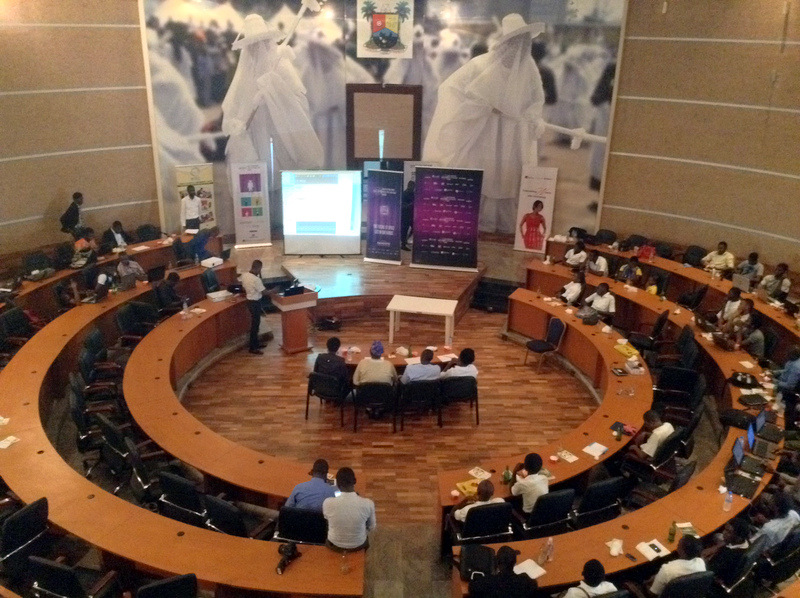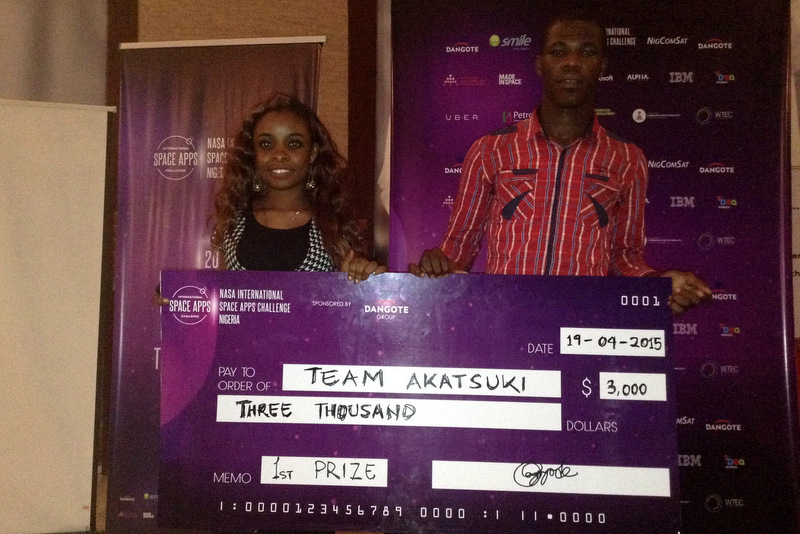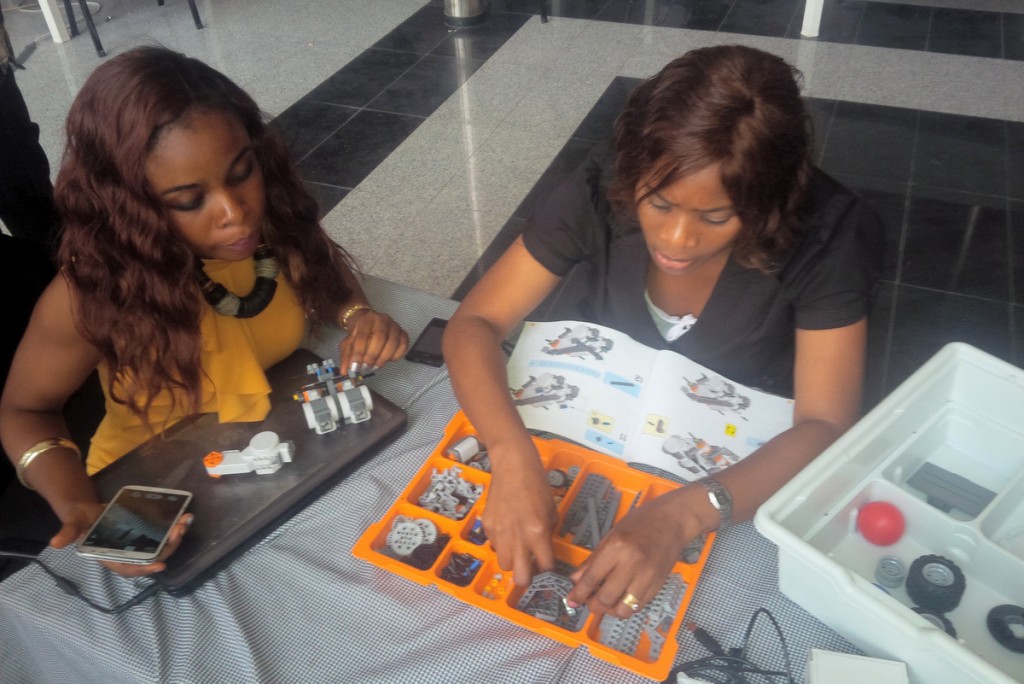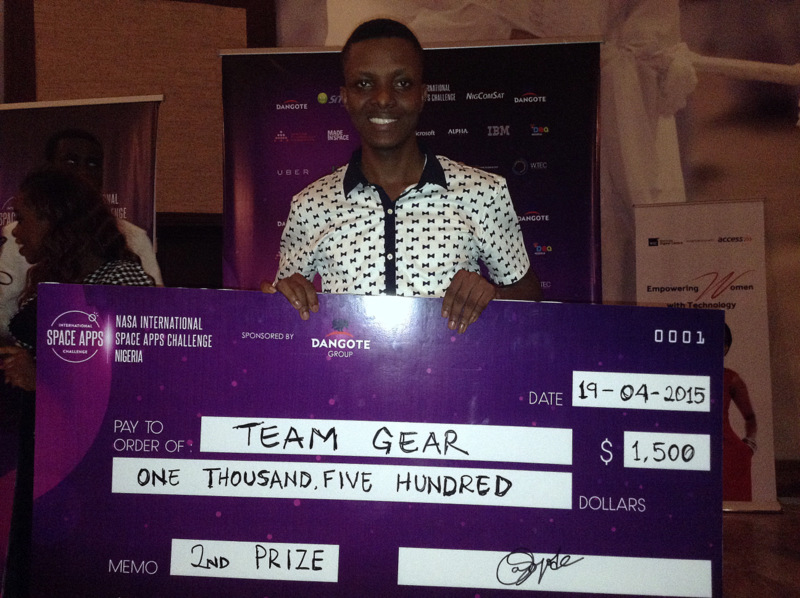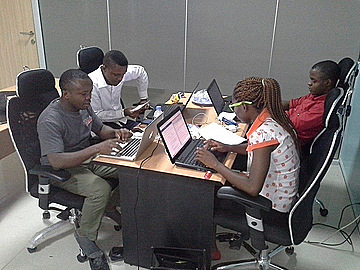After a weekend of intense coding at the 2015 NASA Space Apps Challenge that held simultaneously in three Nigerian cities; Lagos, Calabar and Ilorin, the winners of the challenge have surfaced.
At the pitch event that held at the City Hall, Lagos on Sunday, three top teams emerged out of a total of 12 teams who pitched at the event final. Teams developed solutions in four categories; earth studies, space exploration, human health research and robotics.
First Prize Winners – Team Akatsuki
Prize Money – $3000
Team Members – Alayaki Bilqis, Akingbade Ayobami and Morris Yewande.
Challenge – Robotics
The first prize winners, Team Akatsuki designed a robot, ROCKID using the LEGO Mindstorm NXT. The proposition according to team lead, Yewande Morris, was to design an astronaut assistant that can pick rock samples in space and return them to space lab.
The ROCKID, Rock IDentifier, prototype for event was programmed to identify barriers, pick color-coded cardboard payloads and follow a path of pickup and delivery.
1st Runner Up – Team Gear
Prize Money – $1, 500
Team Members – Gideon Ewa, Uduak Essien, Emem Brownson, Reuben Aniete
Challenge – Earth Studies
Team Gear designed a mobile app, AgroCast, a crowdsourced agric information portal that is publicly accessible. AgroCast, according to the team lead Gideon Ewa, allows farmers report disease outbreak, view disease, their symptoms as reported by other farmers and possible control measures. AgroCast also features an open source API than can be built upon and also the data curated from the app can be mined and deployed for forecasts.
2nd Runner Up: Team Landmark Replug
Challenge – Earth Studies
The third prize winners, Team Landmark Replug, also developed a location-based crowdsource-based Agric application, Cropinator. There was no prize money for the third position.
Event lead and partner at African Technology Foundation, Oluseye Soyode-Johnson said the next frontier is to track the projects and guide the teams in the coming years. “African Technology Foundation and a couple of our partners will be looking at how we can build a pipeline,” Soyode-Johnson said. “We are looking to getting into them into programmes like DEMO Africa which will give them more visibility and putting them into trade missions that can take them to other countries. We’ll be keeping tabs on them to build their applications more into commercially viable things.”
The 2015 Space App Challenge offered up 947 projects from 12780 participants across 133 cities worldwide.









